
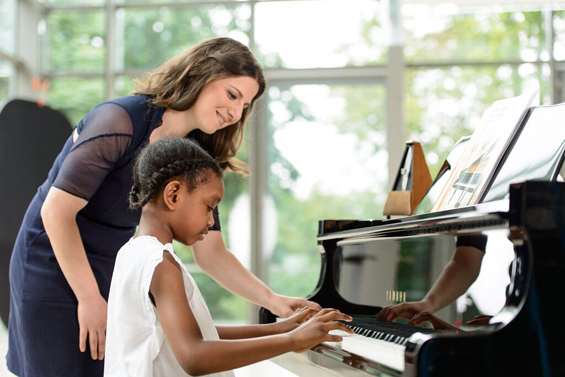
photo: Andrea Botticelli
SPOTLIGHT 30: ANDREA BOTTICELLI, DAN DEAN, LORI LAITMAN
textura is thrilled and honoured to feature Andrea Botticelli, Dan Dean, and Lori Laitman in its thirtieth ‘Spotlight,' with each artist represented by a superb, recently issued album: Stimme aus der Ferne - A Voice From the Distance (Botticelli), Fanfare for the Common Man (Dean), and Are Women People? The Songs of Lori Laitman (Laitman). textura is deeply grateful to the artists for contributing to the article.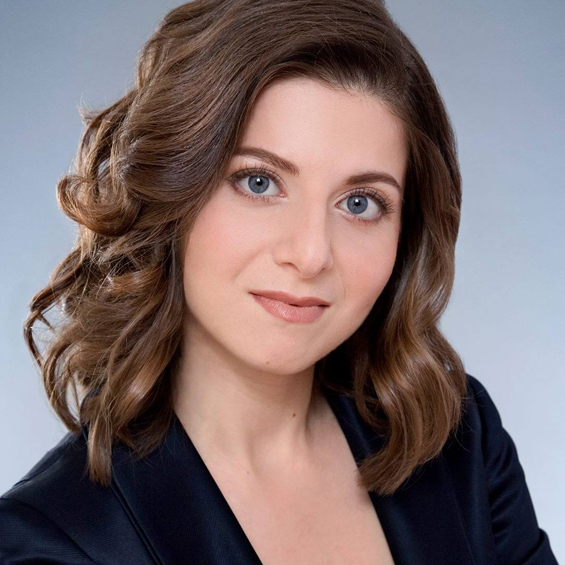
photo: Kate Szatmari
ANDREA BOTTICELLI
Who: I'm a pianist and performer on historical keyboards. I was born and grew up in Toronto, where I'm currently based. I studied at the Royal Conservatory and then University of Toronto, with additional study at the University of Alberta and McGill University. I also took part in music festivals such as: The Young Artists' Experience in Whistler, B.C.; Banff Centre for Arts and Creativity; The New Millennium Piano Festival in Gijon, Spain; Early Music Vancouver; Tafelmusik Baroque Summer Institute; and the Westfield International Fortepiano Academy.
It was at the early music festivals above where I got a taste for performing on early keyboards, and I subsequently decided to seriously explore performing and recording on these instruments. That change of course has led me in some interesting directions! For one, it has pushed me to visit collections, museums, and artisans around the world in Austria, Belgium, the Czech Republic, France, Hungary, Italy, and the United States. I've also undertaken extended residencies exploring the historical keyboards at the Banff Centre for Arts and Creativity and Studio Bell of the National Music Centre in Canada. My research and study on historical pianos creates a unique interpretive lens that complements my extensive study on the modern piano.
What: I try to marry the music that I perform as closely as possible with my keyboard instrument to search for a unique and convincing sound for the repertoire that I play. The exciting thing about playing early keyboards is that it is so non-standard: each instrument has its own voice and expressive qualities. For me, it's a pleasure to listen to each instrument and try to learn how to coax the best sound out of it. This in turn gives insights and new ideas about how to approach the repertoire composed with these instruments. It's an intense process that requires learning and a willingness to re-evaluate your ideas about pieces you thought you knew inside out, but it's very gratifying, and I think the result is very exciting.
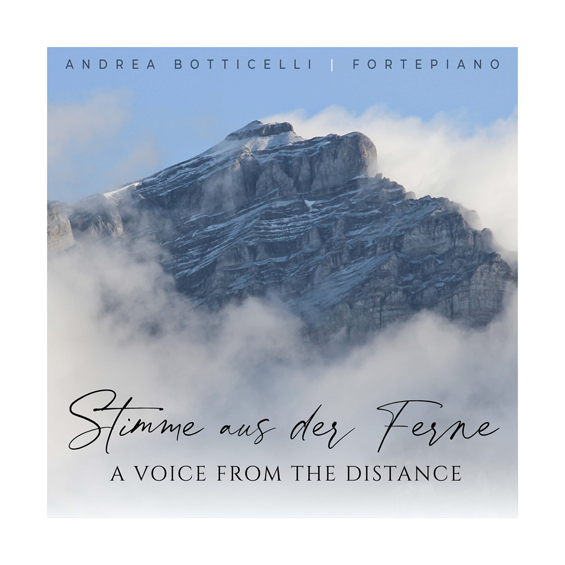
Currently: I'm very excited about the recent release of my debut CD, Stimme aus der Ferne – A Voice From the Distance! This solo CD features works from Schubert, Czerny, Clara Schumann, and Robert Schumann. My upcoming projects explore the very first fortepiano models from the early eighteenth century and also music from later into the second half of the nineteenth century. The editing for my CD was completed during the pandemic, which created challenges, and I have had residencies and concerts cancelled and delayed. I've also given lots of thought during this time to new digital avenues for performance.
Musical philosophy: I strive for fresh musical interpretations that, paradoxically, can grow from an understanding of the performance practices of the past. I like to add to my expressive toolbox with a variety of keyboard instruments, expressive devices, and a more historical approach that valued more freedom and interpretive license in performance.
Favourite artists and strongest influences: It's very hard to encapsulate my strongest influences, or to choose only two! I've studied with teachers that were fine examples of Russian, French, American, and Austrian/German schools of pianism. My most formative piano and music teacher was Marina Geringas at the Royal Conservatory. I would also mention Marek Jablonski as a very strong musical influence.
But I would also add this quote from Rainer Maria Rilke's Letters to a Young Poet: “Keep growing quietly and seriously throughout your whole development; you cannot disturb it more rudely than by looking outward and expecting from outside replies to questions that only your inmost feeling in your most hushed hour can perhaps answer.”
Recordings that have deeply affected me: I have listened voraciously to the history of recorded pianists. I enjoy great pianists from the ‘Golden Age,' such as Horowitz, Cortot, Rachmaninoff, and Godowsky.
Cortot's Chopin Concertos: I've often listened to Cortot's playing for the masterful phrasing, his musical charisma and style.
Podger-Cooper's Mozart Violin Sonatas: Using historical instruments, these recordings represent a ‘new' sound, with a freshness and inspired interpretation.
A memorable event, concert, or experience: The most recent memorable musical experience was my impression after trying a fortepiano for the first time. I was a student at the Early Music Vancouver Festival and played in master classes on harpsichord and fortepiano. I was struck by how the instrument spoke to me and how certain stylistic and technical features just felt right: it offered an insight into the musical world of the composers that I think would have been impossible to imagine or to try to deduce from the sound of a modern piano. In that sense, it was not only an exciting experience, but one that had a fundamental impact on my interpretive approach.
website: ANDREA BOTTICELLI

photo: Dan Dean
DAN DEAN
Who: I was born in West Seattle, while my parents were living at Alki Beach, across the street from the ‘Birthplace of Seattle' monument. I've lived in the Pacific Northwest most of my life, except for the year I spent in L.A. after college. I went to school in West Seattle and then the University of Washington. I have an English degree but studied music while I was attending college, most notably with one of my would-be mentors, William O. (Bill) Smith, an original member of the Brubeck Octet and later, Quartet. Bill and Dave were classmates at Mills College, studying with Darius Milhaud.
I've been living on Mercer Island, a suburb of Seattle, located in the middle of Lake Washington, for decades. It's quiet, and we live amongst trees with a good assortment of wildlife, in spite of being surrounded by the burgeoning Seattle metro area. I have been very fortunate in my musical life to have known and played with many top players. I started playing bass when I was twelve, and I just couldn't get enough of it. My long-time jazz duo partner Tom Collier and his family moved in across the street at that time. That was the beginning of my musical journey. I played in Jerry Frank's trio in my junior and senior years in high school also with Tom, and after that, with Walt Wagner's trio, again with Tom. I was sixteen to eighteen at this time and learned volumes about music playing six nights a week. During our run with Bill Smith at the Merchant's Café, the owners at The Pioneer Banque (where the main jazz headliners played) asked me to play for their upcoming artists—Howard Roberts, Shelly Manne, Buddy DeFranco, and others. Howard and I became lifelong friends at that time and played for decades together. He was pure genius, as was Bill Smith.
What: From an early age, I would play in studios, which has been a real passion for me from the very beginning. Being a studio musician, you must be able to play anything—any style or idiom. I did some jazz records like Diane Schuur's Deedles for Dave Grusin/GRP, but also rock, played in the studio punk group Helen Keller, played on multiple records for the Brothers Four, a huge number of ads/jingles, and essentially anything someone wanted to record. There was a fair amount of studio work in Seattle at the time, and I loved the challenge and art of recording, which led to my career in recording and production. Anything is ‘fair game' for me musically, as I learned by playing next to Bill and Howard. Tom and I began playing classical pieces during jazz gigs/concerts, which led to a commission from the Seattle Symphony for a piece for Electric Bass and Vibraphone (which we still play with orchestras from time to time).
I play the bass with a pick à la Carol Kaye, Joe Osborn, Paul McCartney—in addition to playing with my fingers. The pick allows all sorts of enhancements to articulation—at least for me. Tom and I recorded a fusion album back in the '70s called Whistling Midgets that featured us as main artists playing technically demanding music with Don Grusin, Alex Acuna, Ernie Watts, and Gary Herbig. After spending many years in the studios, I formed my own ad/TV music production company and built my first studio in the late ‘70s. I also was one of the early sampling guys, creating Woodwind, Brass, String and Bass libraries for EMU Systems, GigaSampler/Studio, Kontakt, and others.
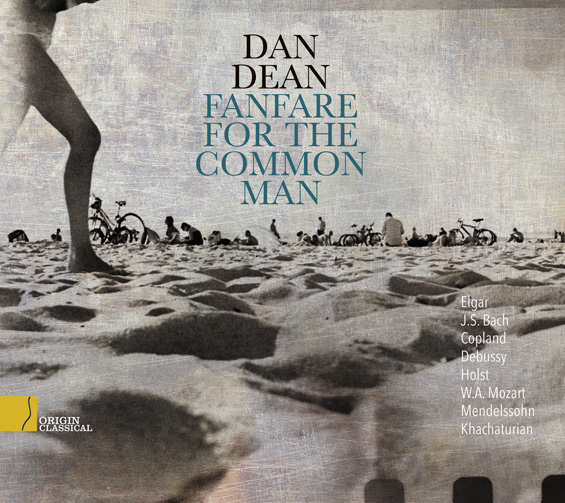
Currently: I'm currently working on my third classical project (Russian and French composers so far), which is turning out very nicely. Some years ago, I thought it would be interesting to write and produce myself as a ‘singer/songwriter,' so that project still looms, needing a great drummer. I'd like to do another 2 5 1 duet project, taking up from where I left off with 2 5 1. I've been mastering projects for clients and Origin Records. As far as COVID-19 and its impact is concerned, it has essentially destroyed my (and most musicians') ability to make a living. There are zero sessions (except my own), almost no live performing and economically, and things are bleak with very little indication of improvement. I would love to perform in other countries around the world, but there are restrictions/roadblocks. At least while ‘sheltering in place' I can still produce my classical CDs!
Musical philosophy: The difference between doing something and not doing it is just doing it. Many people get overwhelmed by overthinking the start of a project. After doing decades of ads and music for radio and TV, one quickly gets over the hurdle of the first note on paper or hard disc. The phone rings (well, it did) and the client might ask you to do a marching band version of their theme—in three days. Or a piece based on carpenters' tools. Or ducks. Or a string quartet. You don't have time to fret over it, you just do it. The reality of super-tight timelines has been with me a long time and, though stressful, is the best training.
As a bassist/rhythm section player: “When in doubt, leave it out.” You don't have to play every note you imagine. Learn to play ‘space.' Debussy was quoted as saying, “Music is the space between notes.” George Martin wrote a book titled All You Need Is Ears. It's about freely experimenting with music, production, and sound. Roll up your sleeves and experiment. If it doesn't work, try something different. I only write in pencil, because I know it will be erased and modified. It's not like I'm erasing an error, it's more like I found something better! Finally, never forget that music is emotion captured in dots on a page. When I am working on my classical vocal projects, I really ‘work' timbre, dynamics, articulations, and so on. I only have the sound of my body to ‘replicate' the universe of sounds that an orchestra is able to generate.
Favourite artists and strongest influences: Howard Roberts will always be a huge influence on me. Ditto with Bill Smith. Both made music seem effortless. Both were adept at polytonal harmony, meaning they could in a millisecond drop into a new key centre for a while and then back to the root key seamlessly. Tom Collier has been a huge influence in that we have played music together for five decades. We both know when the other will zig or zag! In the past six years or so I've taken a keen interest in classical music. It's all I listen to outside ‘work.' Pianists Roger Kellaway and Denny Zeitlin are unbelievable. So are Yuja Wang and Martha Argerich, Richard Tee. Dr. John. It's difficult to list my favourites, since there are so many who are so incredible.
Recordings that have deeply affected me: There was something profound about Keith Jarrett's Treasure Island for me. Maybe it was the time period I first heard it—the same time I was playing behind the greats at the Pioneer Banque. Shelly Manne told me about Roger Kellaway's Cello Quartet. It's still a favourite and special to me. I love the Danish String Quartet's Woodworks CD. All these recordings have a single thread, which is that they push emotional buttons. The recordings are wonderful, the performances are superlative, and the compositions and performances are superb, but it's the emotional impact of all these elements that affects me.
A memorable event, concert, or experience: Howard Roberts, Pete Jolly, John Guerin, and I opened for Dave Brubeck at Concord. It was one of those performances where you couldn't play a bad note. All Classical Portland added my arrangement of Bach: Air on the G String as we went from the darkness of the total eclipse, back into the light. It was moving! A life-changing moment? When my dad bought me my first bass. I still have it!
website: DAN DEAN
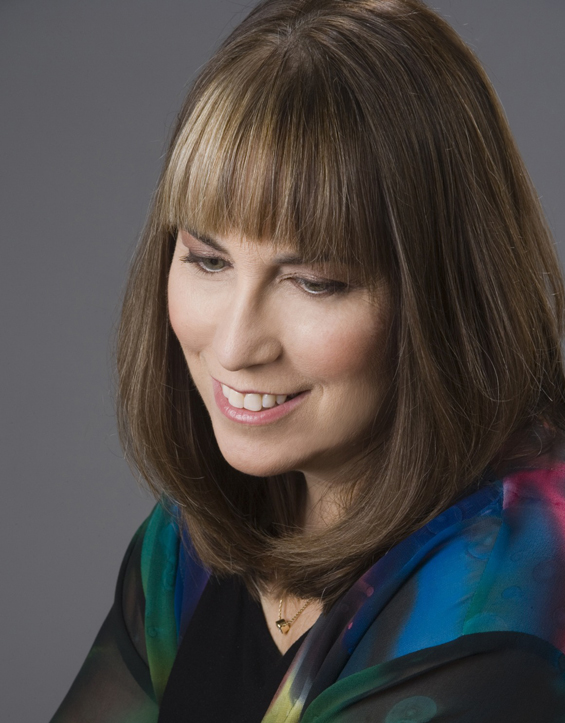
photo: Christian Steiner
LORI LAITMAN
Who: I'm a composer who specializes in writing for the voice. I've lived in Potomac, MD (a suburb of Washington, DC) since 1981. I was born into a musical family in 1955 in Long Beach, NY. My mother was a violinist, singer, and pianist and both sisters were serious musicians. I began studying piano at age five and flute at seven, and growing up, I was focused on becoming a professional flutist.
Being a composer never entered my mind until I went to Yale at sixteen. When I discovered that most of my friends (including my future husband) were composers, I decided to start studying composition in my sophomore year with Jonathan Kramer. My most influential class was a graduate course in writing music for film and theatre, taught by Frank Lewin. The techniques I learned in his class are ones I still use today, and I often view my poems in a theatrical way—imagining they are miniature films for which I am writing the music.
After Yale College, I continued studies at The Yale School of Music, receiving my MM in flute performance. I then married my college sweetheart Bruce Rosenblum and moved to Williamstown, MA, to teach music with him at the Buxton School. The next year, we moved to NYC, where my husband started Columbia Law School, and I taught flute and composed for industrial films and theatre productions, most notably the incidental music for The Taming of the Shrew at the Folger Theatre in DC.
After the birth of my first child in 1980, I focused more on composing short chamber works, which, to my mind, were adequate but nothing exceptional. It wasn't until 1991, when I was already the mother of three young children, that I discovered my true compositional voice. That was when, at the insistence of my friend and former Interlochen Music Camp roommate, soprano Lauren Wagner, I reluctantly wrote my first art song, The Metropolitan Tower, a setting of Sara Teasdale. Almost immediately I realized that I had a facility for setting words to music. I also felt the quality of my songs far surpassed that of my previous compositions. Since then, I have composed almost exclusively for the voice. I love telling stories through music and discovering different poets.
What: I view each poem, or libretto, as a puzzle to be solved, and the text is paramount. My compositional approach is multi-layered, and all my inspiration stems from the words themselves.
I begin with the vocal line, figuring out the best rhythms to honour the natural stresses of the words. All melodies are custom-crafted to suit the voice and to emphasize the most important words in a phrase with the goal of illuminating and magnifying the meaning of the words. I never know which direction the words will take me, and I discover the structure as I proceed. Leitmotifs are often used in both my songs and opera, as well as the technique of word painting, in an effort to further illuminate the text.
I use harmonies to comment on the emotional content of the subtext, with very fluid changes to the tonal centres in order to match the varying moods of the text. Although I have some idea of the harmonies I will eventually use, they are not fleshed out until the vocal line is complete. My accompaniments are often quite challenging and also fairly independent from the vocal line, as they are generally focused on examining the text from a different vantage point. Other musical decisions, such as texture, timbre, range, meter, even absence of sound, are made with the intent of providing additional layers of textual commentary. The final product is a complex web of sound that reveals my interpretation of the words.
Most of my songs are scored for voice and piano, but I also have several for voice with solo instruments, and several scored for voice with chamber ensemble. And of course, for my operas, I use an orchestra for maximum colour effect. Interestingly, for my songs, vocal timbre is one of the least important considerations, as I feel my songs translate well to many different voices because of my process, which focuses on melody, whereas in the operas, timbre, both voice and instrumental, is paramount.
Many of my songs are combined into song cycles. At the beginning of my career, I grouped songs together, always aiming to create a dramatic arc. Later on, I developed more of a story-telling approach to crafting a cycle, sometimes uniting a cycle by weaving together leitmotifs from song to song.
I've loved discovering classical poets and am so grateful for their art. Often, as birthday presents, I have set Emily Dickinson. I find her unique and creative vision of the world astonishing. A good portion of my catalog also deals with Holocaust-themed poetry, and I have been commissioned several times by Music of Remembrance in Seattle. For a subject as important and horrific as the Holocaust, I find that music is the perfect vehicle for telling the stories of those who experienced it—the music both amplifies the emotions but also helps to cushion the effect of the horror. It's so important to share these stories, both to increase empathy and to honour those who are no longer with us.
And it's been thrilling not only to work with so many wonderful living poets, but to develop true friendships with them. Sometimes they have been surprised by the juxtaposition of poems I have chosen for a cycle, but they have all been pleased by my settings.
For me, the combination of melody and words are like two strands of DNA, combining to form a unique whole. And when the melody is separated from the words, and used independently, I feel that the music still retains the imprint of the meaning of the words. I will often separate the two strands and use the music alone, without words, to comment on the psyche of a character or to provide a fuller emotional picture of the situation at hand.
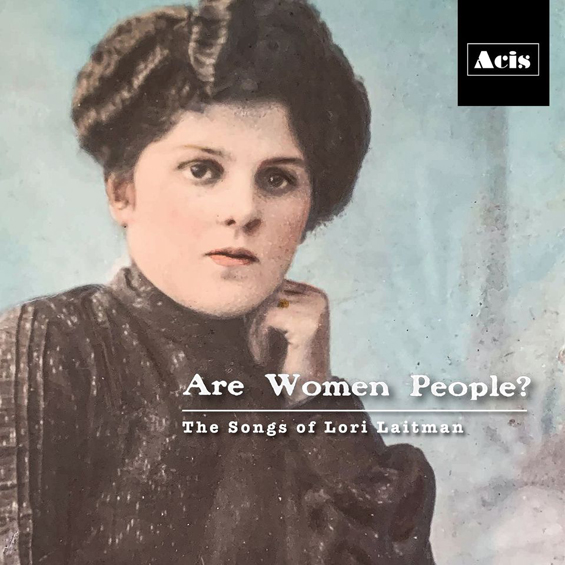
Currently: In 2019 and 2020, before the pandemic, I had recorded almost two CDs worth of music. For these releases, I went with Acis, a boutique label run by Geoffrey Silver. I had previously worked with Geoffrey, most recently on Stephen Powell's American Composers at Play, which garnered a Grammy nomination. I was always so impressed by Geoffrey's ears and his skill as a producer.
The first of these CDs, Are Women People?, was released in May 2021. The next CD, The Ocean of Eternity, is slated for a February 2022 release. Artists featured are Nicole Cabell, Alisa Jordheim, Maureen McKay, Patrice Michaels, and Yungee Rhie; mezzo-soprano Katie Hannigan, baritone Daniel Belcher, violinist Tarn Travers, saxophonist Michael Couper, and I join pianists ChoEun Lee, Tze-Wen (Julia) Lin and Andrew Rosenblum.
[Interestingly, Covid affected the recording of the title cycle The Ocean of Eternity, as each artist recorded their part separately—Yungee Rhie in Seoul, South Korea, ChoEun Lee in Cleveland, Tennessee, and Michael Couper in Los Angeles, CA. Michael then assembled the files, with further help from recording engineer Bill Maylone—an astonishing technical feat.]
During the quarantine, I worried about my family's health and was quite sad not to see them. But I was grateful to have time at home with my husband and dog, and to have the chance to finish my chamber opera Uncovered, based on the memoir by Leah Lax. This work has been commissioned by a consortium, including Utah State University in Logan, UT, who will premiere the opera in March 2022, and City Lyric Opera, who will present the NYC premiere in the fall of 2022. Both productions will be directed by Beth Greenberg. I have five additional opera productions in 2022 since most of my 2020 performances are now ‘coming due.'
I was also quite busy during the pandemic with virtual residencies, interviews, and master classes, including working with the talented students at Eastman and Peabody. Several students created music videos from my songs, which gave me the impetus for a new project with British tenor/filmmaker Dan Norman and director Jeremy Bidgood of Positive Note (I was blown away by their inventive film of Erlkönig for Oxford Lieder, which I discovered on Twitter.)
Together, we are crafting films of two of my songs: The Apple Orchard (poetry by Dana Gioia), and Sarong Song (from my cycle The Soul Fox, poetry by David Mason). The recording took place in early July in England (I was attending virtually) with mezzo-soprano Kitty Whately, pianist Simon Lepper, and tenor Dan Norman—all extraordinary artists. The incredible artist Ian Beck has also joined the project, contributing amazing watercolours to further the narrative of the songs. I am hoping for a release by the end of 2021.
And now that I have ‘cleared the decks' of commissions, I've returned to complete my grand opera Ludlow, based on the verse novel by David Mason. This opera about immigrants, with a libretto that moves between the 1914 Colorado mining-town disaster known as the “Ludlow Massacre” and the present day, was started in 2012, but the opera has lain dormant since. Now, with an extra decade of experience, I feel well-equipped to tackle its challenges.
Musical philosophy: Music and art transcend time and space. Music is part of what makes us human. I think that everyone shares an innate love for music, even if preference for genres varies wildly. As a composer I feel it's important to discover your own unique voice and write music that reflects your vision.
Favourite artists and strongest influences: From a very early age I was drawn to stories and song—as a child I was thrilled by the drama of Prokofiev's Peter and The Wolf, and the kiddie records Tubby the Tuba, Bongo the Bear, and PeeWee the Piccolo. As a young child, I loved musicals and would often play and sing songs from Oklahoma, My Fair Lady, and West Side Story. I didn't particularly like practicing, but as a pianist, I preferred Bach, and as a flutist, Telemann.
I missed much of the rock music of my generation, but Joni Mitchell's songs were a big favourite in college. I still think that her colours and the individuality of her vocal lines are very reminiscent of art song. I also loved listening to Tchaikovsky, Rossini, and Monteverdi, for the beauty of the melodies and the inherent drama. As a young mother, I was obsessed with Into the Woods by Sondheim, and as my children grew, I often listened to the music they loved: Bach, Brahms, Prokofiev, Mozart, and Bartok are just a few names; Billy Joel was also a big favourite.
Recordings that have deeply affected me: Lauren Wagner's American Song Recital was the first CD to include my music, which was huge for me. I loved all the songs on this CD, and loved Lauren's voice and Fred Weldy's piano playing.
Other recordings that I've spent the most time with include Sondheim's Into the Woods, for the beauty of the music and wit of the story, and Bernstein's Candide (the recording with June Anderson), for similar reasons. Leon Fleisher's interpretation of the Brahms Second Piano Concerto was also a favourite.
A memorable event, concert, or experience: Over the past few decades, there have been a few concerts that left me so moved that I literally burst into tears at the end and couldn't speak for about thirty minutes. One such concert was Osvaldo Golijov's The Passion According to St. Mark, which I saw in NYC. I could not fathom how the piece was constructed and was completely overwhelmed. I was also in tears and speechless after seeing Hamilton both on Broadway with Lin-Manuel Miranda as well as with the touring company in DC, again overwhelmed by the genius of the show. And when I see wonderful young musicians perform brilliantly (many such performances take place at the Heifetz International Music Festival), I also can get quite emotional. All of my children are musicians married to musicians, so, of course, when any of them are performing or when my daughter's compositions are being performed, I am understandably moved.
While classical music is not highly valued in our culture, I am grateful that a core group of extremely talented young musicians will carry the tradition into the future.
website: LORI LAITMAN
October 2021![]()